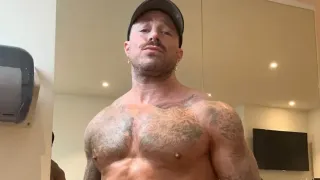
Nov 1
Kendall Jenner Opens Up: When Family Values and Queer Identity Collide
READ TIME: 3 MIN.
In a rare and strikingly honest moment, Kendall Jenner—the supermodel and reality TV icon—has shed light on the deeply personal experience of managing a loving relationship with her transgender parent, Caitlyn Jenner, while holding “completely different views” on politics and social issues . Kendall’s reflections, shared in a recent interview, offer a uniquely modern snapshot of the ways in which LGBTQ+ families grapple with the intersection of identity, politics, and kinship in 2025.
Kendall admitted that maintaining her bond with Caitlyn requires a kind of emotional multitasking—what she describes as “compartmentalizing” their relationship in order to preserve both love and boundaries . In a world where political divisions cut across dinner tables as much as cable news panels, Kendall’s openness resonates for many LGBTQ+ people and allies who find themselves navigating similar terrain.
Kendall’s revelation is both deeply personal and undeniably public. “We have completely different views,” she shared, referencing her father’s high-profile Republican alignment and her own more progressive stances . Caitlyn Jenner, a transgender woman and former Olympic champion, has long been a polarizing figure within the LGBTQ+ community: celebrated for her visibility, yet often criticized for political positions that run counter to the interests of many queer and trans people.
For queer audiences, the Jenner family dynamic is more than just tabloid fodder—it’s a microcosm of the broader, ongoing struggle to reconcile identity with ideology. How do you honor your truth when the people closest to you see the world through a radically different lens? For Kendall, the answer lies in “compartmentalization”—a strategy familiar to countless LGBTQ+ folks who have learned to set boundaries while still fighting for understanding.
The cultural resonance of Kendall’s comments is impossible to overstate. Across the LGBTQ+ spectrum, families are often sites of both refuge and resistance. For transgender people in particular, acceptance by loved ones can be lifeline—yet even “acceptance” can come with caveats, especially when core beliefs about equality, bodily autonomy, and civil rights are up for debate at the family table.
Kendall’s willingness to speak out about her “frustration” offers visibility to an all-too-common queer experience: loving someone whose politics feel, at times, like a personal affront. It echoes a familiar refrain within queer circles—sometimes, the bravest thing you can do is maintain connection without compromising your own values.
This story lands in a moment when generational and political rifts within queer communities—and their families—are more visible than ever. While Caitlyn’s journey as a transgender woman brought new visibility to trans issues, her support for right-wing policies and politicians has drawn sharp criticism from trans and queer advocates, who argue that her views are at odds with the lived experiences and urgent needs of trans people nationwide .
Kendall’s ability to “compartmentalize” can serve as a survival skill in a culture where, for many, coming out does not automatically usher in unconditional support. Instead, queer people often find themselves negotiating, educating, and—when necessary—drawing lines in the sand to protect their own dignity.
The Jenner family’s ongoing public presence continues to generate both hope and frustration. On one hand, the visibility of a high-profile trans woman in American media has given countless trans youth and adults a figure to point to—proof that trans people can be celebrated, successful, and seen. On the other hand, when that visibility is paired with rhetoric or policy positions that undermine trans rights, the sense of betrayal and “frustration” that Kendall describes can feel communal.
Kendall’s comments, then, are more than just a celebrity soundbite—they are a reminder that queer families are complicated, and that love does not always mean agreement. For many LGBTQ+ people, the work of building a chosen family (or repairing a biological one) often requires exactly the kind of compartmentalization, patience, and self-preservation that Kendall describes.
If there’s a takeaway from Kendall Jenner’s frank admission, it’s this: relationships across political and personal divides demand both courage and boundaries. For queer and trans people, those boundaries can be the difference between self-acceptance and self-erasure.
Kendall’s story is a testament to the fact that even in the most visible, privileged, and scrutinized families, the work of loving—and sometimes disagreeing—never ends. It’s also a call to the wider queer community: keep showing up, keep setting boundaries, and keep loving fiercely, even when the road is anything but easy.
For anyone navigating similar waters, Kendall’s honesty can be both balm and battle cry. The struggle is real, but you’re not alone.






